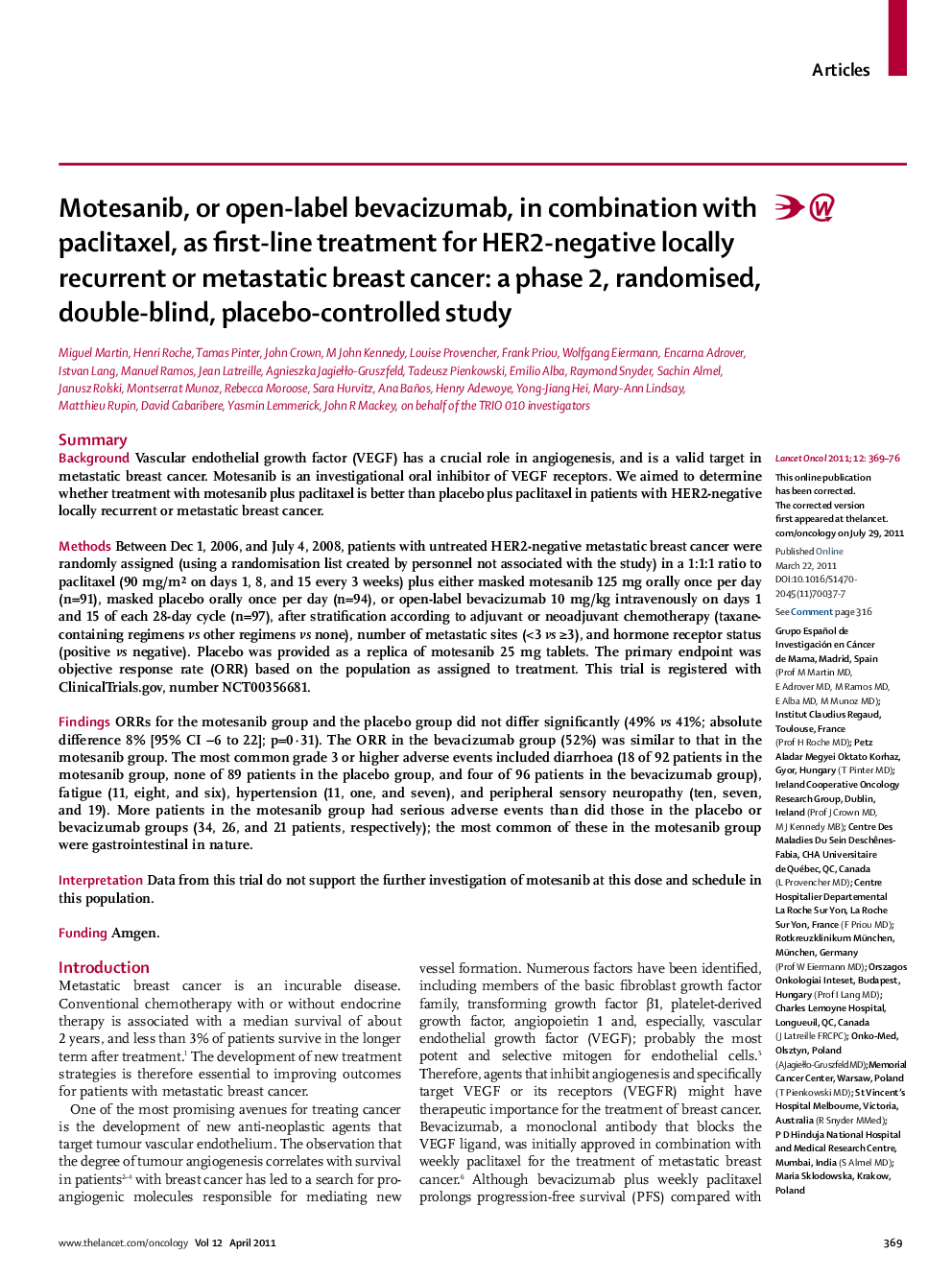| Article ID | Journal | Published Year | Pages | File Type |
|---|---|---|---|---|
| 3995308 | The Lancet Oncology | 2011 | 8 Pages |
SummaryBackgroundVascular endothelial growth factor (VEGF) has a crucial role in angiogenesis, and is a valid target in metastatic breast cancer. Motesanib is an investigational oral inhibitor of VEGF receptors. We aimed to determine whether treatment with motesanib plus paclitaxel is better than placebo plus paclitaxel in patients with HER2-negative locally recurrent or metastatic breast cancer.MethodsBetween Dec 1, 2006, and July 4, 2008, patients with untreated HER2-negative metastatic breast cancer were randomly assigned (using a randomisation list created by personnel not associated with the study) in a 1:1:1 ratio to paclitaxel (90 mg/m2 on days 1, 8, and 15 every 3 weeks) plus either masked motesanib 125 mg orally once per day (n=91), masked placebo orally once per day (n=94), or open-label bevacizumab 10 mg/kg intravenously on days 1 and 15 of each 28-day cycle (n=97), after stratification according to adjuvant or neoadjuvant chemotherapy (taxane-containing regimens vs other regimens vs none), number of metastatic sites (<3 vs ≥3), and hormone receptor status (positive vs negative). Placebo was provided as a replica of motesanib 25 mg tablets. The primary endpoint was objective response rate (ORR) based on the population as assigned to treatment. This trial is registered with ClinicalTrials.gov, number NCT00356681.FindingsORRs for the motesanib group and the placebo group did not differ significantly (49% vs 41%; absolute difference 8% [95% CI −6 to 22]; p=0·31). The ORR in the bevacizumab group (52%) was similar to that in the motesanib group. The most common grade 3 or higher adverse events included diarrhoea (18 of 92 patients in the motesanib group, none of 89 patients in the placebo group, and four of 96 patients in the bevacizumab group), fatigue (11, eight, and six), hypertension (11, one, and seven), and peripheral sensory neuropathy (ten, seven, and 19). More patients in the motesanib group had serious adverse events than did those in the placebo or bevacizumab groups (34, 26, and 21 patients, respectively); the most common of these in the motesanib group were gastrointestinal in nature.InterpretationData from this trial do not support the further investigation of motesanib at this dose and schedule in this population.FundingAmgen.
